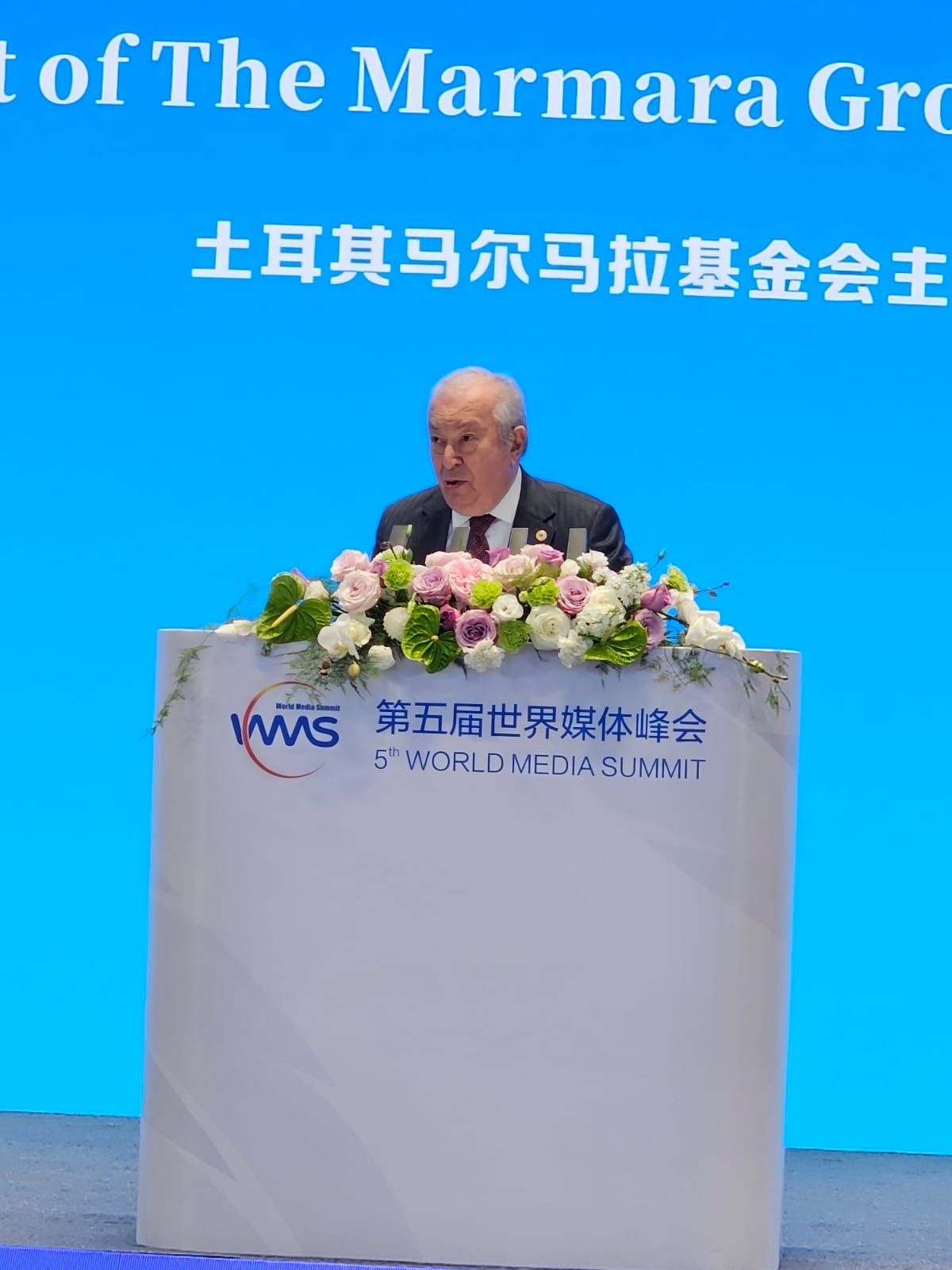Dr. Akkan Suver Speaks at the 5th World Media Summit
During the afternoon session of the first day of the 5th World Media Conference held in the city of Guangdong, Dr. Akkan Suver addressed the audience. Representing the Marmara Group Foundation, a delegation consisting of Dr. Akkan Suver, Oğuzhan Ceylan, and Mahmut Saklı attended the 5th World Media Summit, which brought together leading press organizations, renowned writers, and journalists from 101 countries around the world.
Anadolu Agency and Demirören News Agency also represented the Turkish media at the summit.
.jpg)
.jpg)
.jpg)
The speech addressed by Dr. Akkan Suver in the 5th World Media Summit
Dear participants of the 5th World Media Summit,
Ladies, Gentlemen,
On behalf of the Marmara Group Foundation, I would like to respectfully greet your High Delegation from Istanbul.
Even though I am here with my identity as a civil society representative, I am actually a journalist.
I have pursued my life as a journalist and writer. I am still a colleague of yours who continues to write. Having said that, I would like to talk to you about the state of contemporary media.
I started my journalism career in the newspaper and radio era, followed by black and white television and then colour television journalism. Later, the news became available first on computers, then on mobile phones and digital news portals.
When I was a journalist, we were the first to learn about events, and people could only find out about the news when the newspaper was printed the next day.
Later, first with television and now with computers and mobile phones, people are up to date as they find out about every event as it happens.
Learn instantly!
Let's stop here and reflect upon the pace.
News used to be written, read by an editor, corrected if necessary and then published. That served as a control mechanism.
Nowadays, anyone who picks up a microphone says whatever comes to mind. You decide whether it is good or bad.
We have no way of checking the source and accuracy of any news we hear today. Virtual news sources can publish any news they want in any way they want.
This leads people indecisiveness and ambivalence over time as people have difficulty to know right from wrong.
Artificial intelligence sourced lies have now been introduced. Artificial intelligence also generates artificial and fabricated news. All this only multiplies the examples of the difficulties of getting to the truth.
I can cite the
This deception is an example of the predicament of today's media.
It may be going a little too far to say that today's media journalism does not always reflect the truth and the reality.
But you have to believe me, the news is often spun to suit the agenda and the narrative of the needs.
This undermines the reputation of the media profession and ensures that people are motivated by what they want to believe, or are made to believe, rather than the truth.
Today, political manipulation, economic disinformation and cultural erosion are all being manufactured and circulated by the media.
Reputable writers, reputable programme producers, reputable commentators are so few in the world that you can point at them at one blow.
I can even go forward and claim that some members of the media are even paid by PR companies.
I am not revealing these matters to denigrate and discredit the media profession. I share my views with you because I want to take you on a tour of the horizon based on my insights and observations.
To conclude, I would like to give an example of a media effect.
In films made fifty years ago, the leading actors and actresses used to smoke on screen.
Many years later, we discovered that in the United States, the owners of film companies sent their film footage to the cigarette employers' association before shooting their movies, and the association would sponsor part of the cost of the movie on condition that they were able to instruct the directors to have actors and actresses appear with cigarettes in this or that scene.
The intention was to encourage people to smoke and to boost the sales of cigarettes.
Nowadays we see a gun in every film we watch. I wonder if the magnates of arms factories sponsor films today? These films, which serve to make people covet guns, are now in our homes right through television screens.
I am telling you this story today because I think that television is an inseparable part of the media.
Thank you all for your patience and listening to me.


